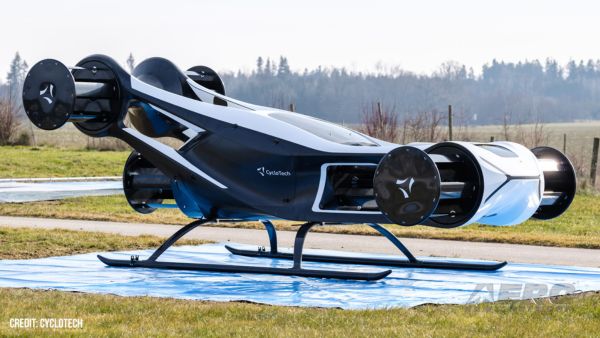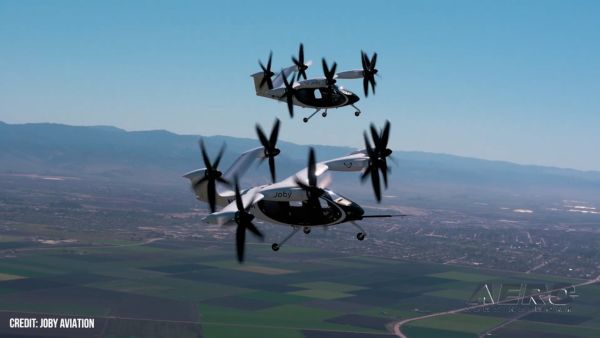Thu, May 15, 2025
(Pilot) Applied Gentle Aft Pressure On The Control Stick To Regain Control, But An Inflight Separation Of The Right Wing Ensued
Location: North Plains, Oregon Accident Number: WPR23LA255
Date & Time: July 5, 2023, 11:30 Local Registration: N40233
Aircraft: Avia Stroitel AC-5M Aircraft Damage: Substantial
Defining Event: Loss of control in flight Injuries: 1 Serious
Flight Conducted Under: Part 91: General aviation - Personal

Analysis: The pilot stated the airspeed may have been too slow when he initiated a 30° - 45° right turn during his first flight in the foreign-manufactured experimental motor glider. The glider immediately entered a clockwise, tight spiraling dive. After several revolutions, he was able to arrest the rotation, but the motor glider’s high airspeed produced significant vibrations. He applied gentle aft pressure on the control stick to regain control, but an inflight separation of the right wing ensued. The pilot released the canopy, egressed about 500 ft above ground level (agl), and deployed his parachute. The motor glider impacted the ground, and the pilot’s parachute landing resulted in serious injury.
Postaccident examination of the motor glider’s wing structure revealed that the right wing’s main spar fractured due to overstress from upward bending loads. No evidence of fatigue was observed with the fracture. However, the wing spar was likely weaker than expected due to wrinkles in the composite fiber reinforcement layers in the upper and lower caps at the critical location where the spar intersected the reinforced closeout rib at the inboard section of the wing.
Since the overstress fractures showed no evidence of damage before separation from a progressive failure mechanism or impact, the loads on the right wing during the accident flight were likely higher than any previously applied loads. However, the extent and angle of the wrinkles in the reinforcement layers at the fracture location indicated that the load that produced the right wing failure in this accident was considerably less than the expected failure load for the design and was possibly lower than the expected maximum design operating load. However, without knowing the actual ratio between the design ultimate failure load and the maximum design operating load of the wing for this experimental foreign-made aircraft, it is uncertain whether the design maximum operating load was exceeded based solely on analysis of the lab findings.
Probable Cause and Findings: The National Transportation Safety Board determines the probable cause(s) of this accident to be -- The pilot’s failure to maintain control of the motor glider, which resulted in an inflight overstress separation of the right wing during a high-speed, high-wing-load spiral dive recovery. Contributing to the accident was the inadequately manufactured wing structure.
More News
"Our 6,000th helicopter built in Canada demonstrates our commitment to manufacturing aircraft capable of performing the most critical missions, as well as our dedication to contrib>[...]
(Pilot) Applied Gentle Aft Pressure On The Control Stick To Regain Control, But An Inflight Separation Of The Right Wing Ensued Analysis: The pilot stated the airspeed may have bee>[...]
Aero Linx: Taylorcraft Foundation, Inc. The Foundation typically participates in 3 events each year: Sun-n-Fun; Lakeland Florida USA. Flyin Taylorcraft, Aeronca and Funk: Barber Ai>[...]
Also: Hartzell Pathfinder Carbon Prop, RAF Flyby, Qatar's BIG Boeing Order?, ‘Luxury Aircraft Tax’ Three MB-339 jets from the Italian Air Force’s aerobatic demons>[...]
Aero Linx: International Federation of Air Traffic Controllers' Associations (IFATCA) IFATCA is the recognised international organisation representing air traffic controller associ>[...]
 Aero-News: Quote of the Day (05.15.25)
Aero-News: Quote of the Day (05.15.25) NTSB Final Report: Avia Stroitel AC-5M
NTSB Final Report: Avia Stroitel AC-5M ANN's Daily Aero-Linx (05.15.25)
ANN's Daily Aero-Linx (05.15.25) Airborne 05.09.25: Frecce Tricolori MidAir, A6M3 Zero Returns, Houthis Bombed
Airborne 05.09.25: Frecce Tricolori MidAir, A6M3 Zero Returns, Houthis Bombed ANN's Daily Aero-Linx (05.16.25)
ANN's Daily Aero-Linx (05.16.25)



